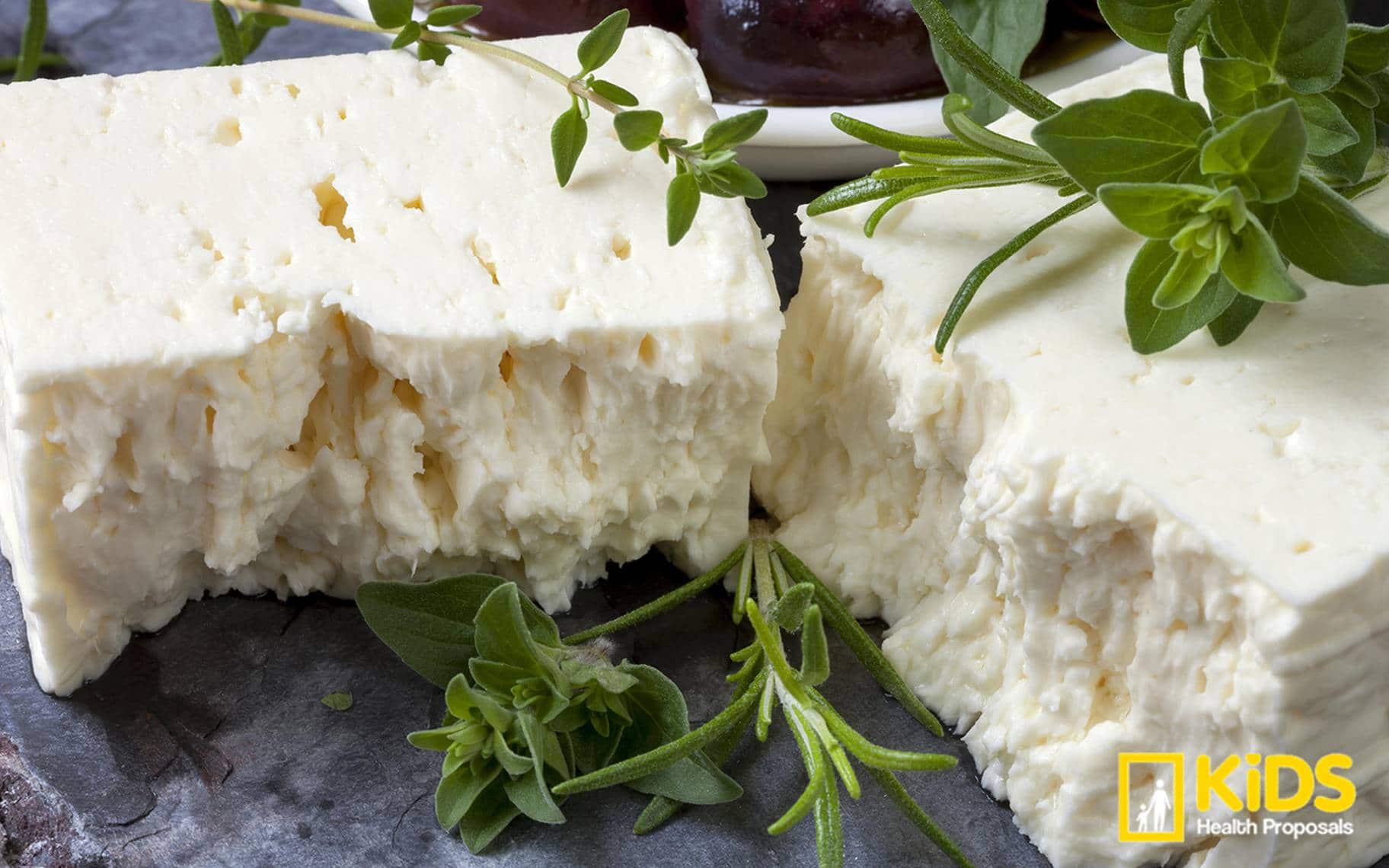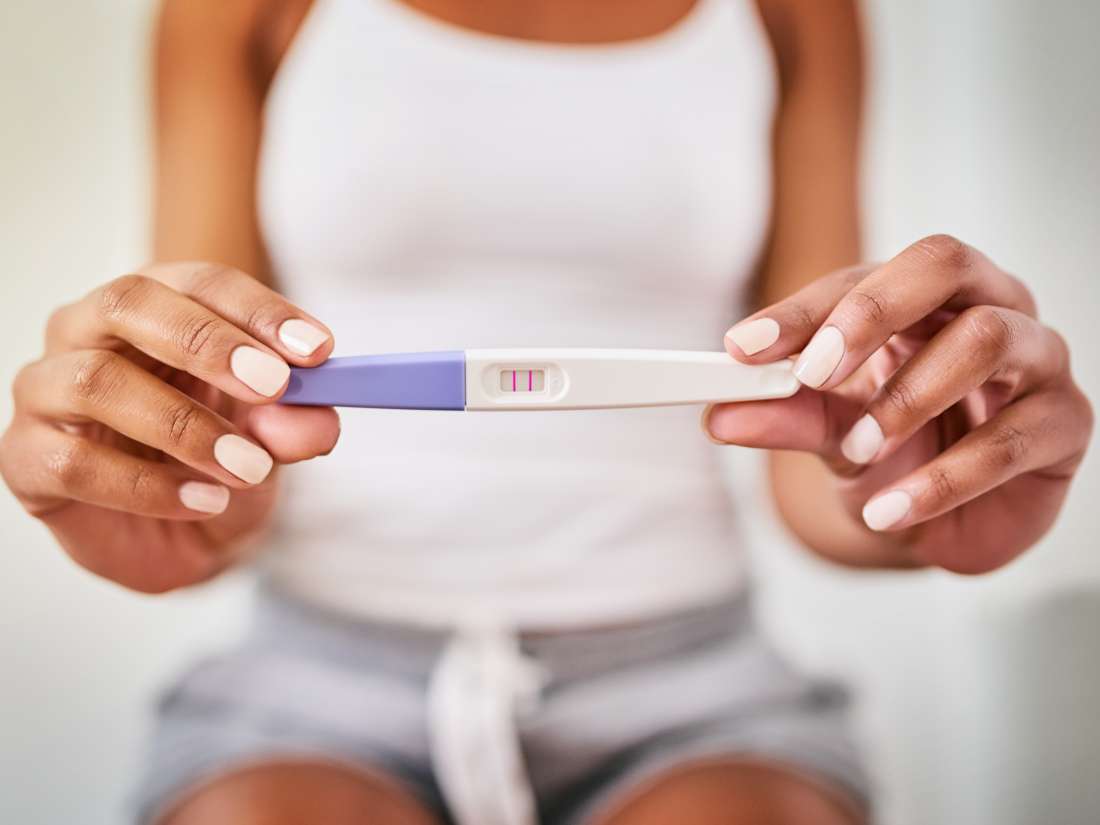Soft blue-veined cheeses such as Danish blue gorgonzola and roquefort are also unsafe to eat when youre pregnant. Hard cheeses are generally considered safe in pregnancy.
 Is Feta Cheese Dangerous For Your Baby During Pregnancy Kidschildren
Is Feta Cheese Dangerous For Your Baby During Pregnancy Kidschildren
You should only consume.

Can pregnant women eat feta cheese. That goes for other cheeses made from pasteurized milk too such as cheddar American cottage and cream cheeses. Moldripened cheeses like brie chevre or camembert fall into the class as feta and are not safe for pregnant women. Additionally if she doesnt have lactose intolerance she can treat herself to it.
As long as theyre pasteurized many soft cheeses are perfectly safe to eat during pregnancy. So before you relish cheeses you need to know about the types that are safe to eat and the ones to avoid during pregnancy. Soft cheeses made with pasteurized milk are considered safe for consumption during pregnancy according to the Kids Health website.
When hard cheeses are produced they are less likely to harbor listeria and the likes of Stilton and other blue-veiled classes of cheeses are an excellent treat for all. Common types of soft cheeses that are generally considered risky for pregnant women include feta Brie Camembert queso blanco queso fresco blue cheeses like Roquefort and gorgonzola and panela. Pasteurizing kills any harmful bacteria and renders the product safe for unborn babies.
Safe And Unsafe Cheeses During Pregnancy. But while pregnant Feta Cheese is pretty unsafe no matter how much it is made from pasteurized milk. Consume pasteurized feta cheese in salads on pizzas or right out of the package.
Goat Cheese without the rind Ricotta. Because it is a soft cheese and listeria growth is the highest among soft cheese. When made from pasteurized milk most soft cheeses are considered safe to eat during pregnancy.
The Food and Drug Administration FDA Trusted Source. Avoid unwashed fruits and vegetables. The good news is that these cheeses are perfectly safe to eat when pregnant and a great source of calcium.
Below is a list of soft cheeses typically made with pasteurized milk. Avoid soft cheeses such as brie feta and blue cheese unless they are clearly labeled as being pasteurized or made with pasteurized milk. It has a firm texture and long maturation period.
Thats because they are more moist than other cheeses which allows listeria bacteria to grow. Even if soft mould-ripened and soft blue-veined cheeses are made from pasteurised milk they still arent safe to eat. Mexican-style cheese like raw Queso Fresco.
Listeria monocytogenes is a pathogen that can be found in many foods that are made from animal products. If the feta cheese is made exclusively from pasteurized milk and packaged accordingly you can safely eat and enjoy feta shepherds cheese during pregnancy. Eating soft pasteurized mild feta cheese is safe during pregnancy.
Most cheese sold in the United States is made with pasteurized milk but some stores carry unpasteurized cheeses so be sure to check the label carefully. Also avoid drinking unpasteurized juice. So what are these annoying bacteria.
The Possible Dangers Eating Feta cheese that contains Listeria monocytogenes can be quite dangerous especially for pregnant women and people over 65 years of age. Consuming soft fresh pasteurized mild feta cheese is safe in pregnancy. According to Kids Health feta cheese that is clearly labeled as being made with pasteurized milk is safe during pregnancy.
Feta cheese produced from pasteurized milk is safe for consumption by pregnant women because the harmful microorganisms contained in the milk are eliminated during the pasteurization process. Feta cheese pregnancy When a feta cheese says it is made from pasteurized milk then pregnant women can eat feta. Notes that pregnant women should only consider eating feta cheese they know has been made from pasteurized milk.
Which soft cheeses are we talking about. Heres what you need to know about eating soft cheeses during pregnancy. A pregnant woman can get feta cheese in moderation as long as the label says its pasteurized.
According to the FDA Food and Drug Administration expectant mothers should only consume feta cheese that is produced from pasteurized milk. The below table lists the safe cheeses you can consume during pregnancy. Whatever you buy always make sure the label says pasteurized on it and talk.
And If you are pregnant you should avoid feta made from raw milk or mixed forms. Pasteurization is a process to kill all harmful bacteria and make the product completely safe for unborn babies. The NHS recommends that except for mould-ripened soft cheeses such as Brie and Camembert all other soft types of cheese are OK to eat provided theyre made from pasteurised milk.
A pregnant woman can without any worry consume feta cheese as long as the label says its pasteurized. During pregnancy women should avoid unpasteurized soft cheeses like brie camembert chevre Danish Blue gorgonzola and Roquefort. Cream Cheese Cheese During Pregnancy Whats Safe and Whats Not pregnancy post by Mama Natural.
These are likely to cause listeriosis infection which can lead to miscarriages preterm labor and newborn death.
The egg travels along one of. The five days leading up to and the day of ovulation are considered your fertile window.
:max_bytes(150000):strip_icc()/ovulation-on-body-basal-temperature-chart-1960284_FINAL-321ccf17906a4c33b230f959d0c9916b.png) How To Detect Pregnancy Or Ovulation On Your Bbt Chart
How To Detect Pregnancy Or Ovulation On Your Bbt Chart
This is your fertile time and when sexual intercourse has the best chance of producing pregnancy.

Do women ovulate during pregnancy. However on rare occasions usually when women are undergoing fertility treatment some women do ovulate when theyre already pregnant. The body starts producing human chorionic gonadotropin and you will test positive for pregnancy. These 5 days are the ones that lead up to ovulation.
Ovulation can occur at any point during this window and may occur on a different day each month. If pregnancy occurs during this phase hormones will keep the lining from shedding with a menstrual period. This is what many refer to as the fertile time of a womans cycle because sexual intercourse during this time increases the chance of pregnancy.
The body switches gears so to speak and focuses on developing the growing embryo. After ovulation comes the luteal phase. Most women ovulate anywhere between Day 11 Day 21 of their cycle counting from the first day of the LMP.
Before ovulation it impossible for a woman to get pregnant from her own egg that she is expecting to come out of her ovary because the egg is still. When chances are highest for conception. A straightforward answer to the possibility of ovulation while being pregnant is a simple no.
By 12-24 hours after ovulation a woman is no longer able to get pregnant during that menstrual cycle because the egg is no longer in the fallopian tube. Otherwise a flow will start around day 28 of the. The women interested in ovulation during pregnancy should know that after this the egg travels to the uterus and it gets implanted into the uterus lining.
When does ovulation happen. You cannot ovulate while you are pregnant. The key phrase here is on average.
The Fertile Window is the 5 most fertile days in your menstrual cycle and having sex on these days gives you the highest chance of getting pregnant. Ovulating as early as day 6 or 7 or as late as day 19 or 20 isnt uncommon or abnormal. When learning about female reproduction most people are taught that a womans cycle is 28 days on average and that ovulation occurs at the mid-point on day 14.
Many women use ovulation predictor kits which identify the date of ovulation 12 to 24 hours in advance by looking at levels of luteinizing hormone or LH the last of the hormones to hit its peak before ovulation. In scientific terms ovulation is the process where the ovaries release an egg during a menstruation cycle. Some though not all women experience ovulation symptoms.
In a typical 28-day cycle women ovulate around day 14 and it usually lasts from 12 to 48 hours depending on the. At this point some women notice a bit of bleeding or spotting. But the most fertile days are the three days leading up to and including ovulation.
AND NO YOU CANNOT HAVE A PEIRiOD WHILE PREGNANT. However normal cycles vary widely and each persons day of ovulation is unique. Unfortunately not every woman ovulates on a particular day in their cycle and your ovulation timing can even vary from month to month.
This means you dont ovulate or menstruate. No you do not ovulate while pregnant. Most women ovulate anywhere between Day 11 Day 21 of their cycle counting from the first day of their last period.
A period will not be the cause of any bleeding during pregnancy. Having sex during this time gives you the best chance of getting pregnant. A common misconception is that all uterus owners ovulate at the same time each cycle approximately on day 14.
Ovulation is the act of your body releasing an egg and sometimes two or more during the menstrual cycle. All you have to do is pee on a stick and wait for the indicator to tell you whether youre about to ovulate. Can a Woman Ovulate During Pregnancy.
Ovulation is a part of your fertile window but pregnancy from sexual intercourse may occur up to five days prior and one day after. Women are born with about 1 million to 2 million eggs but release only 300 to 400 through ovulation during their lifetimes. This is known as implantation.
When a woman is pregnant she does not continue to ovulate and will not have a period. Your usual menstrual cycle is usually interrupted by pregnancy. Can You Ovulate While Pregnant.
YOU CAN have BLEEDING which is LIKE a period and heavy but it is NOT TECHNICALLY A peirod. This egg then makes it away through the fallopian tube and if sperm is present there it will end up being fertilised. The simple answer is no.
If youre trying to get pregnant ovulation is go time. Usually you release just one each month. The egg travels down the fallopian tube where it waits to meet with the sperm.